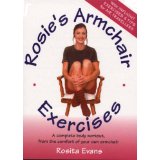Amazon Affiliate post: They pay commission if you use my links.
![]()
Improve Your Health In Later Life
You might think it’s unnecessary to improve your health in later life, or impossible, but it’s never too late to make small changes that could have benefits.
Drink More Water.

Drinking more water and maintaining good hydration will improve your overall health. If you feel thirsty, you’re already dehydrated.
Small sips throughout the day are better than trying to drink a bottle in one go. Taking sips lets your body absorb water more efficiently, and it’s easier if you don’t enjoy it. There are lots of hydration bottles available that motivate you. These are free from microplastics and better for the environment.
Many older people don’t enjoy drinking plain tap water, so sugar-free squash or flavoured waters are still healthy alternatives. Tea and coffee are known for their diuretic qualities (they make you need to pee), but they still count towards your aim of 2 litres per day.
In Winter, hot drinks are important, and herbal or fruit teas can be a nicer option to stay hydrated. Bovril is also a great Winter warmer. Try adding a drop of milk to it! It looks like tea but doesn’t taste like it. Hot squash is also a nice choice, especially if you are struggling with a cold. Add some honey for a soothing drink.
Try To Get More Sleep
Good restorative sleep is vital to our health. While we sleep, our brains revitalise. Try to keep your bedroom fairly cool at night. 18 degrees is the ideal sleeping temperature. If you use a mobile phone or iPad in the evenings, stop using it before you want to sleep. The “blue light’ from the screen is reputed to keep us awake.
Instead, reading a book or listening to gentle music or audiobooks will help you wind down.
Exercise

We all understand the benefits of exercise. It’s good for body and mind, exercise increases the feel-good hormone serotonin, which can also help you sleep. Try some sit-stand exercises using a chair or simple arm strengthening using tins of beans. You’re not trying to get super-fit, it’s more about maintaining muscle and bone strength, which decline as we age. This not only helps in everyday activities but can also help reduce the risk of falling.
![]()
Try setting a step goal using a fitness tracker. The one shown above is less than £10, and can motivate you to increase your activity. If you are very sedentary, start with an achievable goal. If possible, walk outside; if not, try moving more at home. Studies have shown that between 3,000 and 7,000 steps a day can reduce inflammation, which accelerates the ageing process.
Rosie’s Armchair Exercises is a book packed full of great seated exercises. Increased muscle strength can improve your mobility and reduce your risk of falls.
Exercise and Digestion
Digestion is helped with movement. It reduces the chances of constipation and urinary tract infections. If you’re sitting down all the time, everything is compacted. This means food and liquids find it harder to move around your body.
Sunshine
Get out in the sunshine if you can. We all need sunlight for Vitamin D, which scientists have learnt is good for heart health.

If you can’t go outside, it’s worth considering a Vitamin D supplement, which helps regulate the calcium and phosphates in our bodies to protect bones, muscles and teeth. Check with a pharmacist first. Make sure it won’t affect any prescription medication you take.
Fresh and Fibre.

Try to eat more fresh fruit and vegetables. Some people find cooking a chore and tend to have a diet lacking in fresh fruit and vegetables. The 5-a-day guideline provides essential vitamins and minerals, as well as an important source of fibre. There has been significant scientific research into a healthy gut microbiome and its effects on both physical and mental health.
Fruit smoothies are a tasty way to add more fruit, and homemade soup is a good way to pack more veggies into an easy meal.


